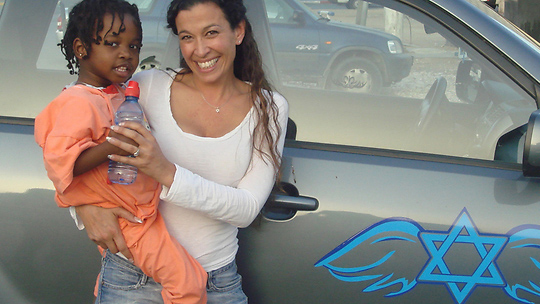
Gal Lusky is used to traveling in Muslim countries. She just usually does it in secret.
"If they recognize me while I am in the field, that's the end," she said. She spoke to Davar from Dubai, where she was part of the Israeli delegation to a conference on international aid to Africa during the coronavirus pandemic. This is the first time that the nonprofit she founded, Israeli Flying Aid (IFA), has presented its full agenda at an international conference, and it is no coincidence that it’s happening in an Arab, Muslim country.
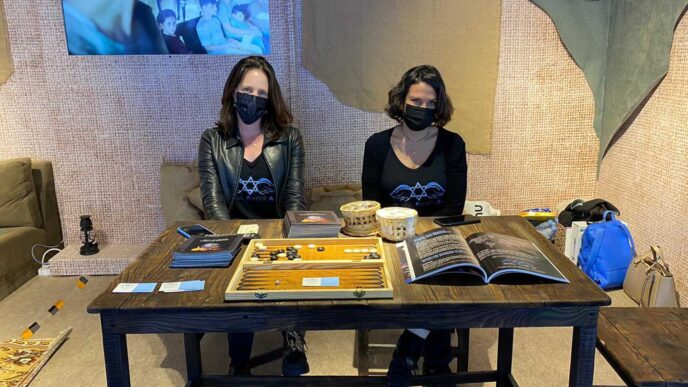
"I want to collaborate with organizations in the Muslim world, away from the Israeli-Palestinian conflict," explains Lusky, who won an award on Independence Day in 2015, in recognition of her work in international aid. "I hope it will open a vital alliance between Muslims and Jews, an alliance that can only be forged because of aid work."
Lusky sat down with Davar to tell us more about her work founding and running her international aid organization, IFA.
How did you come to form an aid organization that operates from Haiti to Syria?
"My brother Yaron, was seriously wounded in Lebanon. That was in 1992. He was a paratrooper officer, they encountered a squad of terrorists near Beaufort. He was taken by helicopter to the hospital where he was rescued. He had serious injuries to his head, eyes, and right hand. The simple life I had lived ended at that moment, at the age of 24.
"My first reaction was the desire for revenge. The new routine I had in the hospitals alongside my injured brother, the thoughts I had with myself, led me to somewhere else. I realized that the strongest revenge would be to try to heal."
So what did you do?
"In 1994, I saw on TV what was going on in Rwanda, and decided to go there and help. I was young and naive, and you could go as far as saying stupid. I took $5,000 in my pocket, money I had saved from work, and flew to Rwanda. Just like that. I got there and looked for aid organizations to join them. I had a burning desire to travel again and again.”
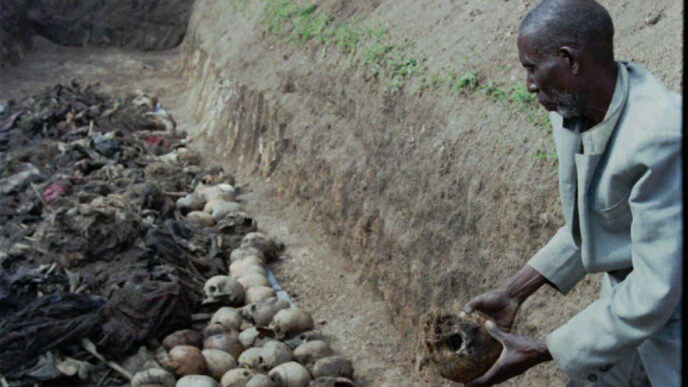
"I wandered for 10 years between different disasters around the world, through all sorts of organizations, trying to help women and children. I tried to find those who most needed help during natural disasters and wars. The problem is that they are not always accessible. I learned that aid organizations do not necessarily help those most in need. They are not autonomous.
"Aid organizations have the freedom to choose who will receive aid and there is a lot of cynicism in the way they act. This is because they will not violate international law, nor the laws of the countries where the disaster occurs."
Not willing to live with the lie
Technically speaking, Lusky is a criminal. Israeli citizens are not legally allowed to enter Syria or Iraq, and are certainly not allowed to move trucks full of equipment and organize large delegations. But what is even more notable about her work is that Lusky and her partners are breaking the law in many of the target countries as well.
"At the end of 2004, a tsunami swept Sri Lanka," she said. "More than half a million lost their homes, tens of thousands wounded and killed. I immediately went there to help with what I could. When I arrived I realized that there was no organization helping Tamil people."
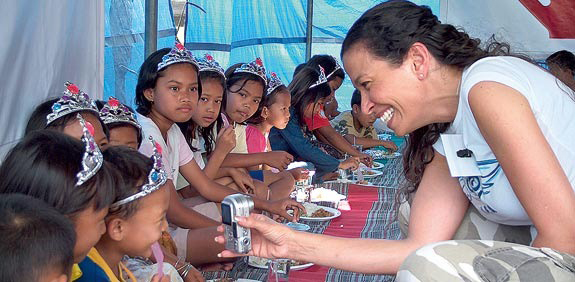
The Tamils are an ethnic minority in Sri Lanka, living in the region hardest hit by the tsunami.
"The Sri Lankan government used this disaster to starve them. Just like that. The government did not let any organization help them, and ensured that they could not receive aid. All the major aid organizations, and also the State of Israel, all helped Sri Lanka, but in practice that meant helping a government that uses disaster to starve a population. I could not live with this lie."
What lie?
"The UN Security Council prohibits intervention within a country without the approval of its authorities. So humanitarian aid is illegal, even in the event of a natural disaster, war, and even genocide, unless the sovereign approves it."
“It took me a while to figure it out and digest it, but during the ten years I have volunteered, I have seen the dark side of humanitarian aid. It’s not talked about. Governments that use humanitarian catastrophe as a weapon of mass destruction of children and women whose only sin was to be born on the wrong side of the political map in their country. Humanitarian organizations, including the UN, they just go along with it.”
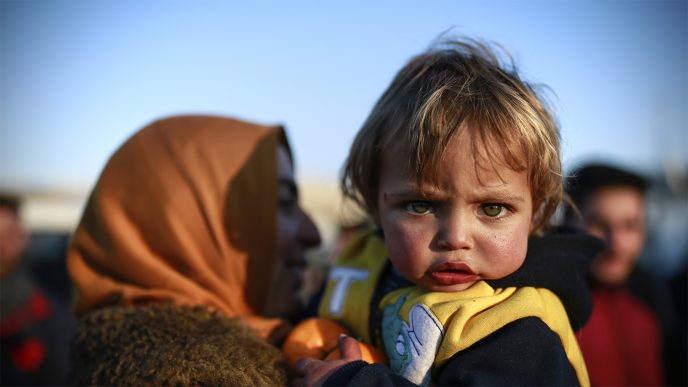
"Do you want to send humanitarian aid to Syria, for example? Know that this aid goes to the Assad regime. Send them food, medicine, clothes, fuel – it frees up resources to buy more weapons and pay more mercenaries. The money that the State of Israel transfers to the UN is used by Assad and all sorts of other dictators. This money does not go to the women and children who need it.
So what did you do in Sri Lanka?
"I entered the Tamil area illegally. It was my first time. I organized an open aid operation where the government approved to help, and in the no-go zones, I entered the forbidden area.
"In order to do that, I set up the organization. This was also the first time that we brought Israeli volunteers to the area, including doctors and psychologists who specialize in treating children in post-trauma. We distributed 42,000 meals there. That was our first operation. "
Do not ask permission to save a life
"Just as no one asks for permission to kill, we do not ask for permission to save lives. That’s our motto," said Lusky." Sometimes we also violate Israeli law by entering enemy countries."
In the 16 years since Sri Lanka, Lusky and her volunteers have been very busy.
"Immediately after we set up the organization, things kept happening fast," she recalled. "We operated in Darfur, while genocide took place there, in the most difficult years between 2004 and 2006. Sudan was an enemy state at the time. We operated in western Sudan at the same time that ,according to foreign publications, Israel was bombing convoys in eastern Sudan. We were also in Indonesia, which has no ties with Israel, after the earthquakes hit.
"In 2005, there were floods in northeastern Georgia and the Georgian government claimed it was too dangerous to send aid to villages in the border area with Chechnya. We managed to get there and brought with us 10 tons of food and aid.
"That year, Hurricane Katrina caused flooding in New Orleans. In the U.S., it is forbidden to enter the homes of others without permission, so our volunteers were the only ones who went from house to house, going inside and looking for unsaved casualties. This is our Jewish DNA. The sanctity of life is above all law.”
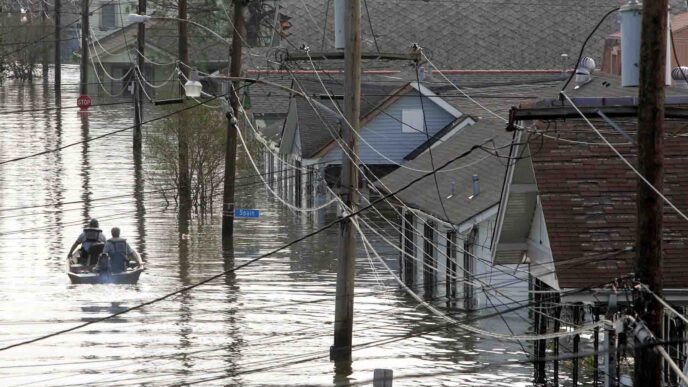
"Later, we also operated in the Kashmir region, on both sides of the border, in India and Pakistan. This is another example of an age-old conflict that ultimately manifests itself in women and children suffering and barely surviving. We don’t care about politics. As long as the ruling authorities are depriving them of humanitarian aid, we will be there. In 2008, we operated in Myanmar, in areas to which access was banned by the military junta, which still controls the country today.
"My biggest failure was in Haiti. We went there after the 2010 earthquake. We went into orphanages to give them medical help, and especially to make them happy. We decided to adopt an orphanage of 75 girls that collapsed completely, and build them a new orphanage. The problem was we could not be there all the time to run all things, and our girls were sold for $50 to be used as victims in voodoo ceremonies."
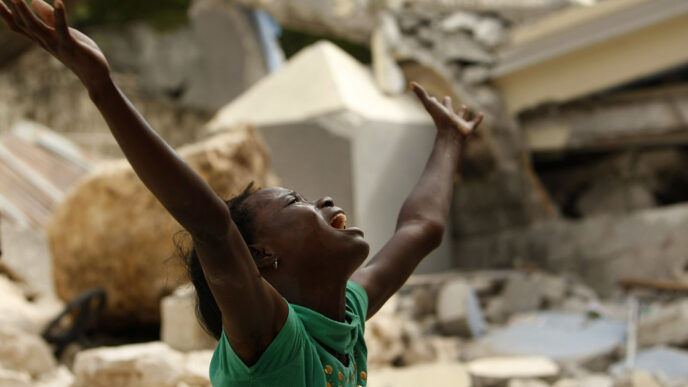
"I can’t get it through my mind even to this day. Murder of innocent girls for worship, human sacrifice. Not only does this phenomenon still exist, but it has become an institutionalized ritual and the Haitian authorities are protective of it. It was a jarring failure. Afterward, I understood it was necessary to protect the girls and for that we had to close the orphanage and move them to another place."
The disaster under our noses
The Syrian civil war broke out in March 2011, exactly a decade ago.
"I realized that now, the disaster is here, under my nose," said Lusky, who has lived all her life in Kibbutz Hukok on the shores of the Sea of Galilee.
Half a million people were killed in the war, including more than 20,000 children, and millions were displaced from their homes.
"Our response was swift,” she said. “We came to this war as an experienced organization. We provided assistance to the population living under the bombing of the Assad regime. In one of our major operations, in cooperation with youth movements and other organizations, we provided dozens of tons of winter gear to Syrians living near the Israeli border.
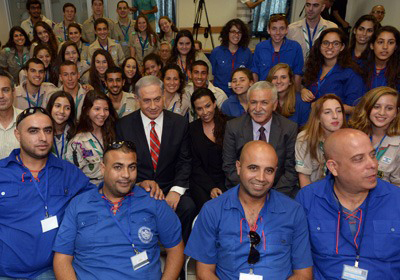
"The success of this operation is evident in the fact that it has reached almost every home in Israel. We have managed to make this remote war something that the youth in Israel are active around, going from house to house and asking for donations of clothes and food. It has enormous value to me."
How do you get into enemy countries?
"Our great heroes are a group of about 80 Arab-Israelis who came from elite units in the IDF. These guys have internalized that the real danger is not dying, but living without the ability to do good in the world.
"You have to understand the risk they are taking. A Jew caught in Syria, God forbid, will be considered an enemy. A Muslim caught in Syria will be considered a traitor. This is a critical difference in the treatment each will receive. An enemy is negotiable, he can be exchanged for something, there is no personal hatred for him.
"Now add to that the fact that some of my volunteers have post-traumatic stress disorder since their days fighting in the IDF. For me, there is an operational risk in this, because I do not know what will trigger them. Even so, I cannot tell them no. A volunteer once asked me, 'I was taught to fight for the State of Israel and today I am not good enough to save a life?’”
Do the people you help know that you are Israeli?
"There's no point in me coming from the other side of the world or endangering my team and myself by crossing borders, and in the end all the supplies that arrive will be burned just because they know it's from Israel. I do not care that they hate Israel.
"We are not here to change what people think of Israel. I do not care about anything except that their children will have something to eat, that the wounded will receive proper treatment. We go on missions to save lives and then return healthy and whole. On some of these missions, the concept of Israel does not exist at all. There is no Star of David."
“Wherever possible, I am openly Zionist. I decided 16 years ago that I would establish an organization registered in Israel. An Israeli Zionist organization that would be proud and unapologetic. I hate it when Israelis apologize for our existence as a nation. Israel is not perfect, but at the same time I know that it is not by chance that I chose to dedicate my life to saving lives, I do it because I am Jewish, Israeli, and Zionist, because of the education I received on the kibbutz.
"I do this because I think this is the most important lesson from the Holocaust. The IDF is the one that trained most of my volunteers. In Syria, I worked with the amazing youth movements, who volunteered to help with aid operations year after year. I do all of this from my safe home that my people have built for themselves with their own hands. The State of Israel gives me security and that is the most important element, those who understand me know that.”
Where are you operating today?
"Since the explosion in Beirut, we have been operating in four arenas at the same time. A few of them are secret. We have moved a lot of medical equipment to Beirut. In order for it not to be a political device, it was done through third parties.
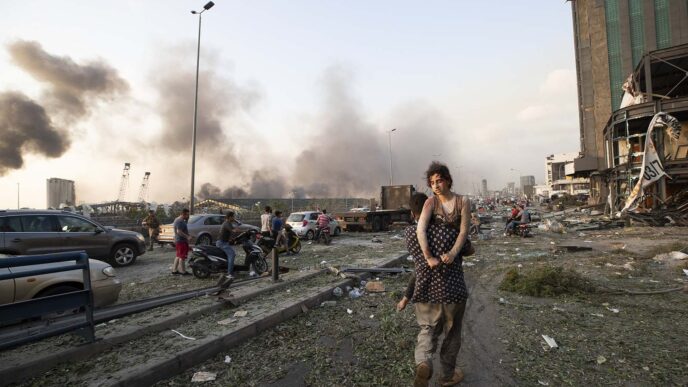
At the same time, we have been sending Chad medical assistance since it was hit by floods last year. Some of what we are doing is supporting their response to the coronavirus. We are also operating in Sudan, but I cannot elaborate."
Today the organization is run by three women, which is rare among aid organizations. Until a few years ago, Lusky did it all on her own. They work with 1,200 volunteers, and in the last five years have not had the ability to absorb new volunteers. It turns out that the organization's secrecy deters donors, who often want a tribute sign or for their name to appear in a newspaper article.
How is the activity financed?
"We need brave and noble donors. We allow donors the right to choose which of our missions to donate to and which not. We recently received a significant donation from an Emirati donor. He could have chosen any Muslim nonprofit, but he chose us."
The volunteers of Israeli Flying Aid are divided into categories, which are adapted to respond to specific events.
"In an earthquake, I need orthopedic and internal medicine doctors, and ruin-removal specialists," Lusky said. "In fires, I need experts in burns and air passages. Every incident needs to be prepared for accurately. We also have volunteers trained for confidential activities. Some of the volunteers were pulled from very elite units of the IDF.
"For confidential missions, I send people I trust who not only are the best in the world in their profession, but who know how to navigate difficult terrain conditions, repair a motor vehicle under fire, in short, to do the impossible. We could make a film out of every operation. There is always action, but no one does it for the action. Volunteers go to save lives. Period."
Do you join all the delegations? Even when it involves danger?
"I can not help but join. I know it is not operationally efficient. My volunteers know how to manage these operations better than me. But I can not send them there without being there with them."
How many times have you crossed the border into an enemy state?
"Next question."
How do you do this work while being a mother of two?
"At first, my mother would help me with my older son, which made sense because I raised him alone. As he got older, I would explain to him why and where I was going. It was our secret. He was not allowed to tell my mother because I knew she could not stand it. He would tell me, 'Mom, if you think the kids there need you more than I do, then go.'
"Over the years, I have consulted with a lot of experts, including some of our volunteers – it is their profession, after all, caring for children with trauma. I asked them what is the best way to prepare my children for the fact that next time I leave, I may not come back.. By the way, I asked my mother and other people not to campaign for my retrieval, if God forbid someone kidnapped me, so as not to harm the country.
"I choose time and time again to do it. Over the years, I have realized that the only fear I have that is stronger than the fear of dying, is the fear of living my life without meaning. Living on this planet without compassion. I have chosen to have children, and it is my responsibility to leave the world to them a little better than how I received it."






